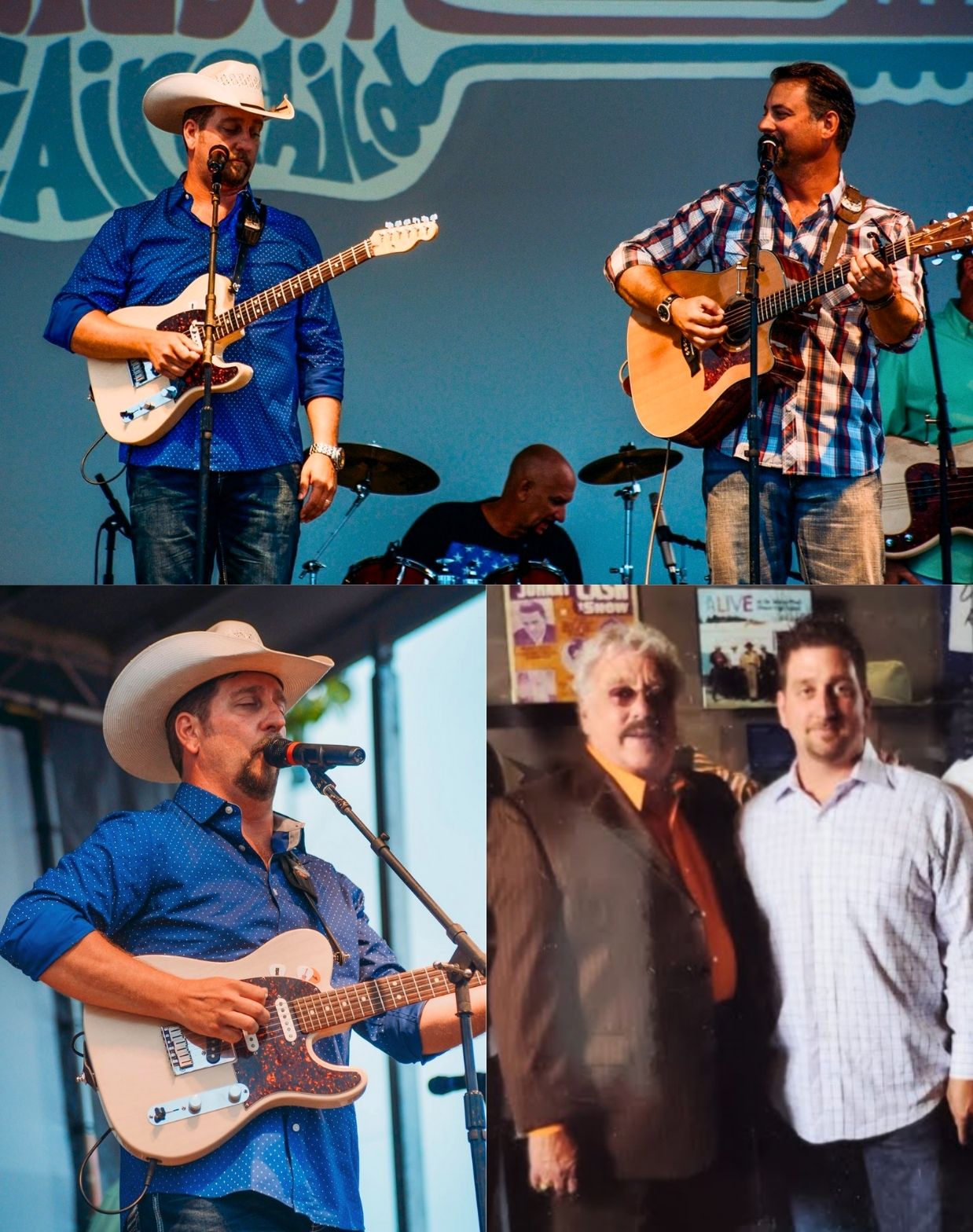
The stage in Staunton, Virginia was quiet, bathed in a warm, golden light that cast a tender glow over an audience gathered for a night steeped in emotion and memory. This was no ordinary concert — it was a homecoming, a farewell, a sacred tribute. At its heart stood Wil Reid of Wilson Fairchild, son of the late Harold Reid, the legendary bass voice of the Statler Brothers.
This poignant moment was far more than just a musical performance; it was a powerful carrying of lineage, grief, and boundless love. Harold Reid, who passed away in 2020, was not only a monumental figure in the world of country music but a beloved hometown son and storyteller of Staunton. His deep, unmistakable harmonies with the Statler Brothers had immortalized the Shenandoah Valley in the landscape of American music.
Tonight, his son Wil, standing on the very stage his father once graced, was entrusted with a legacy heavier than any microphone he held. Alongside his cousin Langdon, Wil stepped into the spotlight, his voice steady yet tender, resonating with the profound weight of loss and remembrance. The room fell utterly silent, each listener caught in the fragile power of the moment, as the slightest sound was swallowed by Wil’s stirring tribute.
Wil’s performance was not just a song; it was a final goodbye, a heartfelt offering sung for Harold, and for the audience who were moved to tears, whispering the last line with reverence before slowly walking off stage. The atmosphere was charged with emotion — a collective exhale, a communal mourning wrapped in the beauty of music and memory.
Video
“We sing this for you,” he began softly, eyes lifted as though his father might still be watching from the wings. “And only you…”
The first chords rang out, simple and stripped bare. It wasn’t about arrangement or perfection. It was about honesty. Wil’s voice carried not only his own heart, but the memory of the bass lines his father once anchored, the humor Harold once laced between songs, the faith he never abandoned. Each lyric felt like both a tribute and a conversation — a son singing to his father across the divide of death.
The audience leaned in. Some clasped hands. Some bowed their heads. Others let the tears run freely, unashamed in the intimacy of the moment. They weren’t just listening to a song. They were witnessing a farewell carved in sound.
As the performance built, Langdon’s harmony joined in, weaving the sound of family into the tribute. Together, Wilson Fairchild became more than a duo. They became a vessel through which Harold’s spirit lived again.
By the time Wil reached the final line, his voice faltered. He whispered it more than he sang it, as if unable to carry the weight aloud. The silence that followed was so complete it rang louder than applause. And then, with the quiet dignity of his father before him, Wil lowered the microphone, turned, and walked slowly offstage.
The crowd did not erupt in cheers. They stood, tears streaking their faces, and gave him something greater: a long, reverent ovation that spoke not of entertainment, but of shared loss and shared gratitude.
For Staunton, the night was more than a concert. It was the closing of a circle. The town that raised Harold Reid had now seen his son lay him to rest again — not with flowers or speeches, but with song.
For Wilson Fairchild, it was a declaration: that the Reid legacy endures, not just in memory, but in melody. For the fans, it was proof that while death silences a voice, it cannot silence what that voice has left behind.
As the lights dimmed, people lingered in their seats, reluctant to leave. Many whispered to one another about the Statler Brothers, about Harold’s laughter, about the bass lines that had once rattled stages across the world. Others simply stood still, holding the moment close.
Because that night in Staunton wasn’t about endings. It was about inheritance. It was about the way a son’s voice can carry his father’s spirit into the future. And it was about the truth that some songs, once sung, never really fade.